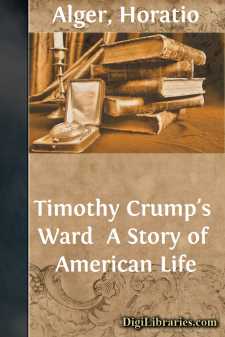Categories
- Antiques & Collectibles 13
- Architecture 36
- Art 48
- Bibles 22
- Biography & Autobiography 815
- Body, Mind & Spirit 144
- Business & Economics 28
- Children's Books 18
- Children's Fiction 14
- Computers 4
- Cooking 94
- Crafts & Hobbies 4
- Drama 346
- Education 58
- Family & Relationships 59
- Fiction 11835
- Games 19
- Gardening 17
- Health & Fitness 34
- History 1378
- House & Home 1
- Humor 147
- Juvenile Fiction 1873
- Juvenile Nonfiction 202
- Language Arts & Disciplines 89
- Law 16
- Literary Collections 686
- Literary Criticism 179
- Mathematics 13
- Medical 41
- Music 40
- Nature 180
- Non-Classifiable 1768
- Performing Arts 7
- Periodicals 1453
- Philosophy 65
- Photography 2
- Poetry 896
- Political Science 203
- Psychology 44
- Reference 154
- Religion 515
- Science 126
- Self-Help 85
- Social Science 83
- Sports & Recreation 34
- Study Aids 3
- Technology & Engineering 60
- Transportation 23
- Travel 463
- True Crime 29
Our website is made possible by displaying online advertisements to our visitors.
Please consider supporting us by disabling your ad blocker.
Rufus and Rose Or, The Fortunes of Rough and Ready
by: Horatio Alger
Categories:
Description:
Excerpt
CHAPTER I.
NEW PLANS.
"So this is to be your first day in Wall Street, Rufus," said Miss Manning.
"Yes," said Rufus, "I've retired from the newspaper business on a large fortune, and now I'm going into business in Wall Street just to occupy my time."
The last speaker was a stout, well-grown boy of fifteen, with a pleasant face, calculated to inspire confidence. He looked manly and self-reliant, and firm of purpose. For years he had been a newsboy, plying his trade in the streets of New York, and by his shrewdness, and a certain ready wit, joined with attention to business, he had met with better success than most of his class. He had been a leader among them, and had received the name of "Rough and Ready," suggested in part, no doubt, by his name, Rufus; but the appellation described not inaptly his prominent traits. He understood thoroughly how to take care of himself, and thought it no hardship, that, at an age when most boys are tenderly cared for, he was sent out into the streets to shift for himself.
His mother had been dead for some time. His step-father, James Martin, was a drunkard, and he had been compelled to take away his little sister Rose from the miserable home in which he had kept her, and had undertaken to support her, as well as himself. He had been fortunate enough to obtain a home for her with Miss Manning, a poor seamstress, whom he paid for her services in taking care of Rose. His step-father, in order to thwart and torment him, had stolen the little girl away, and kept her in Brooklyn for a while, until Rufus got a clue to her whereabouts, and succeeded in getting her back. At the time when the story opens, he had just recovered her, and having been fortunate enough to render an important service to Mr. Turner, a Wall Street broker, was on this Monday morning to enter his office, at a salary of eight dollars a week.
This sketch of the newsboy's earlier history is given for the benefit of those who have not read the book called "Rough and Ready," in which it is related at length. It is necessary to add that Rufus was in some sense a capitalist, having five hundred dollars deposited in a savings-bank to his credit. Of this sum, he had found three hundred one day, which, as no claimant ever appeared for it, he had been justified in appropriating to his own use. The remainder had been given him by Mr. Turner, in partial acknowledgment of the service before referred to.
"Your new life will seem strange to you at first, Rufus," said Miss Manning.
"Yes, it does already. When I woke up this morning, I was going to jump out of bed in a hurry, thinking I must go round to Nassau Street to get my papers. Then all at once I thought that I'd given up being a newsboy. But it seemed queer."
"I didn't know but you'd gone back to your old business," said the seamstress, pointing to a paper in his hand.
"It's this morning's 'Herald,'" explained Rufus; "you and Rose will have to be looking for another room where Martin can't find you. You'll find two columns of advertisements of 'Boarders and Lodgers Wanted,' so you can take your choice."
"I'll go out this morning," said the seamstress.
"All right. Take Rose along with you, or you may find her missing when you get back."
There was considerable reason to fear that the step-father, James Martin, would make a fresh attempt to get possession of Rose, and Rufus felt that it was prudent to guard against this.
"Have you had breakfast, Rufus?"
"Yes; I got breakfast at the Lodging House."
Here it may be remarked that Rufus had enjoyed advantages superior to most of his class, and spoke more correctly in general, but occasionally fell into modes of pronunciation such as he was accustomed to hear from his street associates. He had lately devoted a part of his evenings to study, under the superintendence of Miss Manning, who, coming originally from a country home, had had a good common-school education.
"It's time I was going down to the office," said Rufus. "Good-morning, Miss Manning. Good-morning, Rosy," as he stooped to kiss his little sister, a pretty little girl of eight.
"Good-morning, Rufie. Don't let Mr. Martin carry you off."
"I think he'd have a harder job to carry me off than you, Rosy," said Rufus, laughing. "Don't engage lodgings on Fifth Avenue, Miss Manning. I'm afraid it would take more than I can earn in Wall Street to pay my share of the expense."
"I shall be content with an humbler home," said the seamstress, smiling.
Rufus left the little room, which, by the way, looked out on Franklin Street near the Hudson River, and the seamstress, taking the "Herald," turned to the column of "Boarders and Lodgers Wanted."
There was a long list, but the greater part of the rooms advertised were quite beyond her slender means. Remembering that it would be prudent to get out of their present neighborhood, in order to put the drunken step-father off the track, she looked for places farther up town. The objection to this, however, was, that prices advance as you go up town. Still the streets near the river are not considered so eligible, and she thought that they might find something there. She therefore marked one place on Spring Street, another on Leroy Street, and still another, though with some hesitation, on Christopher Street. She feared that Rufus would object to this as too far up town.
"Now put on your things, Rose, and we'll take a walk."
"That will be nice," said Rose, and the little girl ran to get her shawl and bonnet. When she was dressed for the street, Rose would hardly have been taken for the sister of a newsboy. She had a pretty face, full of vivacity and intelligence, and her brother's pride in her had led him to dress her better than might have been expected from his small means. Many children of families in good circumstances were less neatly and tastefully dressed than Rose.
Taking the little girl by the hand, Miss Manning led the way down the narrow staircase. It was far from a handsome house in which they had thus far made their home. The wall-paper was torn from the walls in places, revealing patches of bare plastering; there was a faded and worn oil-cloth upon the stairs, while outside the rooms at intervals, along the entry, were buckets of dirty water and rubbish, which had been temporarily placed there by the occupants. As it was Monday, washing was going on in several of the rooms, and the vapor arising from hot suds found its way into the entry from one or two half-open doors. On the whole, it was not a nice or savory home, and the seamstress felt no regret in leaving it. But the question was, would she be likely to find a better.
The seamstress made her way first to Spring Street. She was led to infer, from the advertisement, that she might find cheap accommodations. But when she found herself in front of the house designated, she found it so dirty and neglected in appearance that she did not feel like entering. She was sure it would not suit her.
Next she went to Leroy Street. Here she found a neat-looking three-story brick house.
She rang the bell.
"You advertise a room to let," she said to the servant; "can I look at it?"
"I'll speak to the missis," said the girl.
Soon a portly lady made her appearance.
"You have a room to let?" said Miss Manning, interrogatively.
"Yes."
"Can I look at it?"
"It's for a gentleman," said the landlady. "I don't take ladies. Besides, it's rather expensive;" and she glanced superciliously at the plain attire of the seamstress.
Of course there was no more to be said. So Miss Manning and Rose found their way into the street once more.
The last on the list was Christopher Street.
"Come, Rose. Are you tired of walking?"
"Oh, no," said the child; "I can walk ever so far without getting tired."
Christopher Street is only three blocks from Leroy. In less than ten minutes they found themselves before the house advertised. It was a fair-looking house, but the seamstress found, on inquiry, that the room was a large one on the second floor, and that the rent would be beyond her means. She was now at the end of her list.
"I think, Rose," she said, "we will go to Washington Square, and sit down on one of the seats. I shall have to look over the paper again."
This square is a park of considerable size, comprising very nearly ten acres. Up to 1832, it had been for years used as a Potter's Field, or public cemetery, and it is estimated that more than one hundred thousand bodies were buried there. But in 1832 it became a park. There is a basin and a fountain in the centre, and it is covered with trees of considerable size. At frequent intervals there are benches for the accommodation of those who desire to pass an hour or two in the shade of the trees. In the afternoon, particularly, may be seen a large number of children playing in the walks, and nurse-maids drawing their young charges in carriages, or sitting with them on the seats.
Rose was soon busied in watching the sports of some children of her own age, while Miss Manning carefully scanned the advertisements. But she found nothing to reward her search. At length her attention was drawn to the following advertisement:—
"No. —, Waverley Place. Two small rooms. Terms reasonable."
"That must be close by," thought the seamstress.
She was right, for Waverley Place, commencing at Broadway, runs along the northern side of Washington Square. Before the up-town movement commenced, it was a fashionable quarter, and even now, as may be inferred from the character of the houses, is a very nice and respectable street, particularly that part which fronts the square.
Miss Manning could see the number mentioned from where she was seated, and saw at a glance that it was a nice house. Of course it was beyond her means,—she said that to herself; still, prompted by an impulse which she did not attempt to resist, she determined to call and make inquiries about the rooms advertised.
Leaving the Park, Miss Manning crossed the street, went up the front steps of a handsome house, and rang the bell.
"What a nice house!" said Rose, admiringly; "are we going to live here?"
"No, I don't think we can afford it; but I will ask to see the rooms."
Soon the door was opened, and a servant-girl looked at them inquiringly.
"Can I see the rooms you have to let?" asked the seamstress.
"Step in a moment, and I'll call Mrs. Clayton."
They stepped into a hall, and remained waiting till a woman of middle age, with a pleasant countenance, came up from below, where she had been superintending the servants.
"I saw your advertisement of rooms to let," commenced Miss Manning, a little timidly, for she knew that the house was a finer one than with her limited means she could expect to enter, and felt a little like a humbug.
"Yes, I have two small rooms vacant."
"Are they—expensive?" asked the seamstress, with hesitation.
"I ought to say that only one is at my disposal," said the landlady; "and that is a hall bedroom on the third floor back. The other is a square room, nicely furnished, on the upper floor, large enough for two. But last evening, after I had sent in the advertisement, Mrs. Colman, who occupies my second floor front, told me she intended to get a young lady to look after her two little girls during the day, and teach them, and would wish her to occupy the larger room. I thought when I first saw you that you were going to apply for the situation."
A sudden thought came to Miss Manning. Why could she not undertake this office? It would pay her much better than sewing, and the children would be companions for Rose.
"How old are the little girls?" she said.
"One is five, the other seven, years old. Mrs. Colman is an invalid, and does not feel able to have the children with her all the time."
"Is Mrs. Colman at home?"
"Yes. Would you like to see her?"
"I should. I am fond of children, and I might be willing to undertake the charge of hers, if she thought fit to intrust them to me."
"I think it quite likely you can come to an agreement. She was wondering this morning where she could hear of a suitable person. Wait here a moment, and I will go and speak to her."
Mrs. Clayton went upstairs, and returned shortly.
"Mrs. Colman would like to see you," she said. "I will lead the way."
Miss Manning followed the landlady upstairs, and was ushered into a large, handsomely furnished room on the second floor. There was a cheerful fire in the grate, and beside it, in an easy-chair, sat a lady, looking nervous and in delicate health. Two little girls, who seemed full of the health and vitality which their mother lacked, were romping noisily on the floor.
"Mrs. Colman," said the landlady, "this is the young lady I spoke of."
"Take a seat, please," said Mrs. Colman, politely. "I am an invalid as you see, Mrs. ——?" here she looked up inquiringly.
"Miss Manning," said the seamstress.
"Then the little girl is not yours?"
"Not mine; but I have the care of her, as her mother is dead."
"How old is she?"
"Eight."
"A little older than my Jennie....












